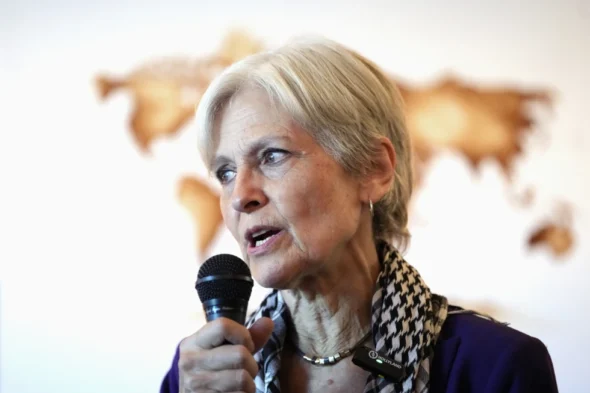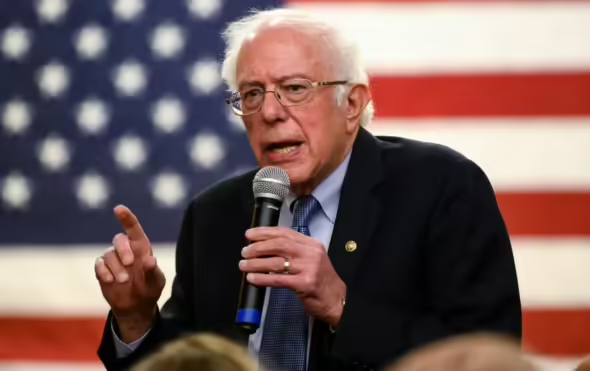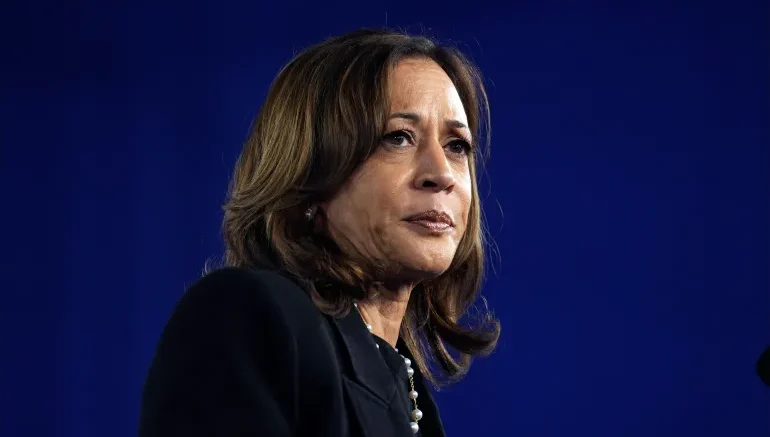By Logan Michael
The international comedic, quadrennial spectacle we Americans call the general election has come to an eerily quick close, solidifying former president Donald Trump’s spot as the 47th president of the United States.
Despite unbearably tight polls leading up to the election, President-elect Donald Trump won every swing state with comfortable margins in many. This outcome has proven shocking to many, especially the Harris-Walz campaign and its supporters.
Key demographics within the democratic voter base, notably women, Hispanic Americans, African Americans, Muslim Americans, younger Americans, and broadly working-class voters, shifted marginally towards Trump this election, serving as a major deciding factor in the former president’s return to the white house.

These demographics historically favored democrats because of their comparatively less hostile policies on pertinent topics like immigration, abortion, racial equality, unionization, and so on. Unfortunately, the democratic party’s wish to retain these demographics for a Harris-Walz victory was not fulfilled, putting the party in jeopardy.
Why did sections of the democratic voter base abandon the party? Why was the Harris-Walz campaign significantly less successful than the Biden-Harris campaign, and where does the party go from here?
Are the Democrats right to blame third-party bids for the presidency and various minority groups for Trump’s victory, or should they look inward and take the party in a new direction?
For several months running up to the election, prominent democratic politicians have criticized Green Party presidential candidate Dr. Jill Stein, alleging that her campaign only existed to bring Trump, her complete ideological opposite, to victory. These accusations aren’t anything new; in fact, they were also levied against her in 2016, during Trump’s first attempt at office.

While ‘splitting the vote’ is certainly a valid fear for progressives and could theoretically aid a Trump victory, this has not been the case, nor is it the goal, for either of her campaigns.
In the 2016 presidential election, when Democratic nominee Hillary Clinton won the popular vote despite losing the electoral college to Donald Trump, Clinton’s campaign team accused Jill Stein of costing her the election. This conclusion isn’t based on nothing, but it is more complicated than that.
Tara Golshan at Vox argued that had all Stein voters cast their ballots for Clinton, the would-be first female president “could have won Pennsylvania, Michigan, Wisconsin,” and a trip to the white house.
While this is theoretically possible, political scientists Christopher Devine and Kyle Kopko contest the idea. The two political scientists paid particular attention to the 2016 exit polling, which indicated that, had Stein not been in the race, green party voters wouldn’t have voted at all.
If these exit polls are true, the democratic claim that Stein stole from Clinton’s electorate appears demonstrably false; instead of shrinking Clinton’s base in true Green Party fashion, Stein grew her own from seeds that otherwise wouldn’t be planted.
Considering how tight the 2016 race was in comparison to this election cycle, the claim that Jill Stein contributed to Trump’s second victory appears ludicrous.
A prominent issue for Stein’s most recent campaign was the Israeli Palestinian conflict.
To many young, hard-left progressives, American Muslims, and Stein herself, the state of Israel is committing the most televised genocide in history, all on the dime of U.S. taxpayers. Stein’s campaign, in an appeal to historically ignored Muslim American voters, sought to distance itself from the two main candidates, claiming to stand alone as the ‘only anti-genocide candidate’ running top of ticket.
Despite her ambitious, idealistic jab at federal office, Stein’s campaign wasn’t as disconnected from reality as people like to think. In a statement released on Stein’s Instagram, the campaign claimed that their motivation was to accrue 5% of the popular vote to secure federal matching funds, bolstering future campaigns.
In short, in the eyes of the Stein campaign, supporting Jill Stein wasn’t an attempt at a Trump white house but rather an investment in the Green Party’s future.
Regardless of her purpose, Stein’s 2024 campaign performed about half as well as her 2016 bid, and was even less influential when it came to determining electoral votes.
For every swing state, Stein’s total votes were comfortably less than the difference between Harris and Trump. If every single Stein voter cast their ballot for Harris instead, Trump still would have won, comfortably.
All of this goes without mentioning that, unlike in 2016, Trump won the popular vote. Harris’ failure has little to do with Stein at all; she simply didn’t get enough votes, like Harris.
Jill Stein isn’t the only figure democrats are pointing their fingers at; however, in the wake of the election results, many Democrats took to X (formerly Twitter) to express discontent towards various minority populations for abandoning the Harris-Walz ticket. The digital news organization Middle East Eye has some of these posts compiled below.

In no world is it appropiriate to associate racial minorities with the democratic party’s failure; instead of being racist, amend your campaign strategy.
The fact that these racist comments are coming from the democrats—the party that claims to champion the rights of Hispanics and Muslims— is frightfully alarming.
Many Muslim Americans have been disillusioned with the Biden-Harris administration’s handling of the Israeli Palestinian conflict, and even more disappointed with the Harris-Walz campaign’s unwillingness to differentiate its policy from Incumbent president Joe Biden.
Similarly, Hispanic American voters weren’t captivated by the campaign’s lack of overt economic policy, favoring Trump’s populist, economically-focused rhetoric.

Despite the fact that economists nearly unanimously agree that Trump’s economic policy is dangerous, he’s the only candidate that actively talked about the economy in the middle of an economic crisis.
If you’re a struggling median voter, and one of the 60% of Americans living paycheck to paycheck, you’re going to favor economically oriented, populist rhetoric. It’s not rocket science; it’s political science.
I’m not the only one who feels this way. Forlorn presidential candidate and Vermont senator Bernie Sanders, a long-time critic of the democrat’s lack of working-class policy, released a scathing statement towards the party’s elite. Only a day after the election, the Vermont senator and progressive powerhouse, who was one of the most outspoken critics and supporters of the Harris-Walz ticket, wrote “It should come as no great surprise that a democratic party which has abandoned the working class would find that the working class has abandoned them.”
“First it was the white working class, and now it is the Latino working class and black workers as well,” Sanders said. “While the Democratic leadership defends the status quo, the American people are angry and want change. And they’re right.”

The Harris-Walz campaign spent much of its time discussing social issues like abortion and democracy, with very little mind paid to economic issues. While Trump certainly had his fair share of social commentary, particularly concerning immigration, gay rights, trans healthcare, and, of course, abortion, he also focused a lot on the economy.
He slammed the inflation occurring during the Biden-Harris administration and proposed his own set of questionable economic policies; but at the very least, they were economic policies. It becomes rather unsurprising that the median, undecided, or economically struggling voter chose Trump’s campaign— it was the only option that actively discussed issues directly affecting them.
While progressives, like Sanders and myself, vehemently favor Harris’ stance on these issues compared to Trump’s, it would be dishonest not to recognize the pivotal need to discuss the current economic crisis in one’s campaign. The Harris campaign had the option to meet right-wing populism with left-wing populism and to forward their own set of progressive, pro-union, pro-worker, economically progressive policies; they just chose not to.
Despite the very traceable reasons for Harris’ defeat, democratic politicians (with Bernie Sanders as an odd exception) seem allergic to taking accountability. Instead, liberal candidates and voters alike have jumped at the opportunity to blame not only racial minorities but LGBTQ individuals as well.
Democratic representatives Tom Suozzi and Seth Moulton, lamenting over Harris’ loss, both blamed the Democrat’s focus on Transgender rights for Trump’s victory. Instead of blaming the rhetoric of the Harris campaign, these democratic politicians, who have co-sponsored trans-inclusive legislation in the past, both decided to go on transphobic tirades about the sanctity of women’s sports as if that single issue could explain the millions of votes Harris would have needed to defeat Trump.
The democrats have historically performed very well among LGBTQ voters, so it comes as a surprise that some democratic lawmakers are willing to make comments like these.
With the party’s dwindling grasp of the black, Latino, Muslim, and working-class electorate, it honestly looks like they’re trying to distance themselves from the very minority groups that support them the most.
Like many, the prospect of a second Trump presidency scares me. Something almost as worrying, however, is the potential transformation of the Democratic party into an entity that no longer represents the American people’s interests, an entity that no longer empowers marginalized voices; a party, no less, that ceases to operate as a bastion of progressivism.
“In the coming weeks and months,” Senator Sanders wrote. “Those of us concerned about grassroots democracy and economic justice need to have some very serious political discussions. Stay tuned.”
I’ll stay tuned Bernie. I’ll stay tuned.




Be the first to comment on "Democrats Blame Everyone but Themselves Amidst Historic Election Failure"